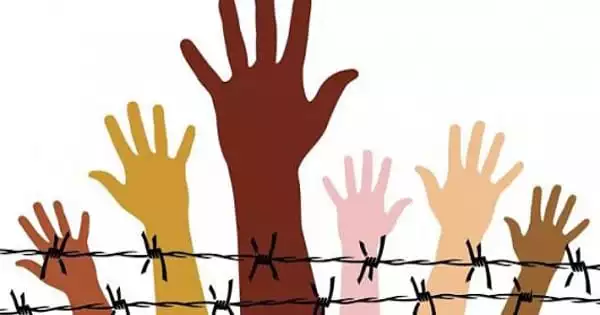Successful Mediation in Matrimonial Disputes
Family and matrimonial mediation is a process in which a mediator, an impartial third party, facilitates the resolution of family disputes by bringing the participant’s to voluntary agreement. Mediation is the very basis of every society to maintain harmony in the social fabric. In the context of matrimonial dispute the mediators are often performing the role of counselors and conciliators and in this paper the terms are used as interchangeable terms. Even before mediation was talked about for solution of disputes in courts for reducing the pendency of cases in courts, mediation for matrimonial disputes was in existence. Initially such counselors were benevolent elders and were available to the party’s right in the families. Elders or others who commanded respect from disputing parties became the mediators. It may be mentioned that the project of the Tata Institute of Social Sciences to run a counseling centre at Bombay was infect a fore–runner of the family courts in Bombay. The counseling centre has merged into the family court system and is looked upon as a model system for a family court. Section 9 of the Family Courts Act, 1984, Section 89 and Order XXXII-A of the Code of Civil Procedure, 1908 make it obligatory for the court to give a fair chance to a conciliated or negotiated settlement before adjudication is embarked upon. Section 23 of the Hindu Marriage Act, 1955 focuses on judge’s role in attempting reconciliation.
Peculiarity of matrimonial mediation
Mediation in the context of matrimonial dispute is different in its form and content from that in the context of commercial and property disputes. The matrimonial disputes are distinct from other types of disputes on account of presence of certain factors which are not obtained in other disputes. These factors are motivation, sentiments, social compulsions, personal liabilities and responsibilities of the parties, the views of the two parties regarding life in general and to the institution of marriage in particular, the security for the future life, so on and so forth. Talking in terms of the mediation for matrimonial disputes one must remember that the factors that weigh the decisions of the parties are not controlled simply by rational factors. Very often irrational and emotional factors also have dominant roles in creation of the dispute as well as in their settlement. In the context of matrimonial disputes the mediator cannot merely concentrate on the monetary or mundane aspects and overlook the emotional aspect. In fact he is concerned with happiness of the parties which is more a matter of sentiment than of reason. Further his/her objective is to discover a solution with no damage or minimum damage to the parties. He cannot simply go a between the two sides telling him how the other party may take suggestions for a solution. The mediator has to prepare the two parties to look for a solution. Very often the parties more than looking for a solution look for their ways and means to wreck vengeance on the other party. The mediator here has to mould himself or herself into a counselor and a conciliator to lead the parties for an amicably acceptable solution that brings about lasting peace. The mediator may have to give advice to the two parties and may also have to coax them in order to make them see acceptability of a proposed solution. The proposal for the solution may come from either party or the mediator himself. The job of the mediator would be to continuously bridge the gaps in the proposals to arrive at consensus.
Mediation can be done simultaneously with exploring possibilities of a legal action on the civil or the criminal jurisdiction. It is a voluntary process and most people are attracted to the option of mediation because
(1) it promotes the interest of the entire family including those of the children
(2) it reduces economic and emotional cost associated with the resolution of the family disputes.
Since it is a voluntary process sometimes the mediator may face a situation where one of the two parties or may are even both parties show disinclination to approach a mediator. Such inhibition has to be won over by the mediator by assuring the parties that the process apart from being voluntary provides for a participatory settlement of dispute and the parties stand more to gain than to lose by allowing mediation in their dispute. A common experience of family court judges and others who mediate or counsel the disputing couple is that even though the parties formally express their willingness to accept a mediator or counselor, in fact, keeps their reservations. The mediator’s duty is to motivate the parties to open up and bring their latent grievances to the fore. One of the skills of the mediator is to increase the ability of the participants to communicate.
In one case as a family court judge when the author invited the parties for an effort for reconciliation as provided by Section 23 of the Hindu Marriage Act 1955, she was faced with an open retaliation by the husband who said that he would be a fool if he participated in any such process which intended to send the wife back to his house by obliterating all her sins which she had committed in the last many years. Under the authority of law, she could tell him that this was a requirement of the law and that she could not bypass the same. Under her command he participated in the process. However, once the parties came face to face in her room counseling started in right earnest and to her great satisfaction the couple ended up reconciling with each other after six years of separation.
The professional mediator not attached to court does not enjoy the power of commanding a party to his presence. Here he must secure the cooperation of the parties by assuring the party that the parties have the freedom to join the mediation but also to terminate it at any time if they feel that the same is not likely to produce any result. Both parties should have the confidence that the mediator was not imposing a decision of his own on the couple. Both parties must understand that the mediator was neutral and did not have any kind of interest in any of the two sides. As the proceedings develop from stage to stage the parties must gain the faith that the aim of the mediator or counselor is not to pass a judgment on the behavior of one side or the other but to correct a situation which is crying for a solution. The approach of the mediator, in the Indian context, should be weighed heavily towards reconciliation but both parties should know that the option of divorce was always open.
Resources
The two questions that immediately pose themselves whenever mediation for matrimonial cases comes up for discussion are:
(1)Where is the mediator or counselor? (2) What is the cost of counseling?
These questions are important because matrimonial mediation/counseling is necessarily different from mediation or counseling for a business dispute. As mentioned above, a matrimonial dispute involves several factors which are not available in an ordinary commercial dispute. The mediator, therefore, has to be fully equipped to meet the situations. The inputs that a matrimonial counselor is required to have includes the knowledge of social customs, knowledge of religious sentiments, an insight into the psychology of the estranged people, the rights and liabilities of the parties in the socio–economic context, so on and on forth. The counselor, therefore, has to have knowledge as well as sensitivity. It may well have to debated as to whether a true marriage counselor is born or made. Undoubtedly one who has traits of maturity, wit, humor, creative intelligence and infusibility (ability to diffuse tension) can be more successful than others in matrimonial mediation. It can be definitely said that although much depends upon the inherent mental make–up of the counselor there is scope to train a counselor to learn how to deal the problem with balanced consideration and how to improve his or her skills in this field. Speaking in absolute terms it may not be difficult to find or develop a team of counselors who can be attached to a matrimonial court or a family court although the country is yet to focus on developing such a cadre in large scale to meet the colossal need of the country. But on relative terms the availability of mediation will depend upon the cost of mediation and on the factor as to who bears the cost and how much the state or the parties are willing to pay. The availability of the counselor will depend on how many counselors can be produced at the given resources available for the purpose. In fact, quality service will not be available unless the mediators choose mediation as a career and for that the career needs to be attractive.
The marriage counselor should not be expected to work without any aid or assistance. It goes without saying that a proper working atmosphere has to be created for the counseling. The counseling cannot be expected to be done in uncomfortable surroundings. Healthy, Hygienic and peaceful surroundings are an absolute necessity for such counseling. Therefore, appropriate infrastructure, staff and other perks have to be provided to the counselors. Also this is necessary to enhance the credibility of the institution in the eyes of the beneficiaries. Secondly, the marriage counselors may very often need the facility of a social investigator or May himself or herself be required to visit the parties to the disputes. A visit to the house of a party and meeting the members of the family in their house may give a clearer picture of the socio–economic conditions of the parties. The counselor by visiting the family in its own surroundings may also get to know the equations between different members of the family. Very often, the dispute and the solution lay not so much in the relationship between the husband and the wife as in the relationship between the couple and the other members of the family. Thus, the facilities of this nature have to be necessarily provided.
The marriage counselor may also require the facility or power to seek expert opinion of a physician or a psychologist or even a psychiatrist. Therefore, by legislation, practice or otherwise these facilities will have to be made available to the counselor.
For mediation to be meaningful the state or the parties must be ready to bear the cost of the facilities required by the mediator. As against these costs what is saved by the parties is the cost of a prolonged trial, including the lawyers’ fee, expenses for production of witnesses and other similar factors. Saving for the state will be in terms of judge-jour and in terms of reduction of pendency of cases at all levels.
Strategies and Management
The matrimonial counseling yields better results when attempted before litigation. Pre–litigation counseling is a stage where polarization has yet not taken place. Very often at this stage the allegations against each other are vague. At this stage, the parties are more likely to forgive and forget. At this stage, they are perhaps more hopeful of a solution and, therefore, ready for more sacrifices and adjustments. When the litigation starts the need to be sharp and focused makes the parties to be acute in their allegation and very often these allegations are exaggerated. In order to sound more convincing false stories are woven into the pleadings giving rise to heightened animosity. The exchange of pleadings very often takes the parties to the point of no return. Therefore, by way of strategy every effort should be made before the litigation actually commences. At all the entry points a check, therefore, has to be exercised to prevent more litigation because post–litigation ones. The first signs of matrimonial dispute are litigations for maintenance and complaints to the police. The police has to handle the subject with sensitivity, wisdom and patience. The handling of the matrimonial disputes in the form of offence under Section 498 A of the Indian Penal Code, 1860 have necessarily to be handled differently. The accused in these cases cannot be dealt with like accused in the other offences like theft or dacoit or cheating. The accused are not criminals in the traditional sense of the term. If the investigating officer is able to decipher how much of the complaint is true and how much is exaggeration he may play an important role in preventing increase in the litigation. On the other hand, if he wields the same rod, which is given to him for handling other criminals, on the parties to a matrimonial dispute, he may create a tremendous mess. It is here when the parties should be told to be more patient with pursuing their cases without, however, undermining their respective claims. The counseling centre attached to the Crime against Women Cell in Delhi Police is doing their bit. Although much improvement is possible and much is said about their efficiency their contribution should not be entirely undermined.
Court attached conciliation should become a mandate for all litigations whether under section 125 of the Code of Criminal Procedure, 1973 for maintenance or for divorce. As for present, Magistrates make their own efforts to bring about a settlement in the limited sphere of maintenance. The courts handling criminal cases under Section 498 A make their own efforts for a consolidated settlement. So do the matrimonial courts. In view of the shortage of time in the hands of the judicial officer, a need is always felt that the work of counseling/mediation at different levels be taken over by a professional counselor or mediator. The basic difference among the police, the judge and the mediator is that the police is trained to frame or prove a charge, a judge is to focus his attention on right or wrong doing but a mediator/ counselor is to focus on restoration of equilibrium and remain non-judgmental all through. The mediator remains on guard against his temptation to belittle or give lift to one or other party.
Coming to the strategies to be adopted by the counselor, the following stages can be suggested:-
i. Probing of facts;
ii. Identifying the real cause of dispute;
iii. Exploration of possibilities of reconciliation or divorce;
iv. Bring the parties to an agreed solution; and
v. Shaping the solution in the legal formats.
Probing of facts and identification of issue in a matrimonial dispute call for enormous patience. Very often, the pleadings or the first narration of the parties will conceal more than they reveal. Very often the counselor finds that the parties themselves have not been able to decipher what really is the cause of disharmony. It is only after some active listening by counselor for long sessions that the real problems actually surface. One example which the author can give from her experience is that of a couple who come to the counselor narrating all kinds of allegations against each other despite the fact that in the assessment of the counselor they did not really hate each other. After a couple of sittings it surfaced that the problem was regarding the inhibition of the wife in going to bed with the husband. Still later it turned out that the wife’s inhibition was caused by body odor of the husband who worked all day in a factory producing paints. Before marriage as lovers the wife never felt the odor as repulsive but as she came to closer proximity to the man she found it offensive. This realization came only during the counseling sessions and when the fact surfaced the solution became easy. Very often during these interviews when parties are allowed catharsis they themselves come to the terms with themselves and perhaps find it easier to bear with the situation they live in or to understand the approach of the other party. As discussed in the later part of the paper the counselor may find various reasons for a matrimonial discord. In some event third parties may be involved. There are disputes arising out of too little money or too little accommodation, so on and so forth. Once the counselor has identified the real issue, i.e., what ails the relationship, the counselor has to proceed to examine the possible solutions. Is reconciliation possible? For arriving at the reconciliation the counselor has to see if the cause of dispute can be removed. Suppose the discord is because of violent nature of the husband or the wife, the counselor has to examine whether and how the behavior of the violent person can be modified. If it is shortage of accommodation causing the problem, can the same be solved? Or can the third party like, mother–in–law, be separated or made to see her role in correcting the situation. The possibility of the reconciliation has to be fully explored. Sometimes the suggestions for improvement need to be put to trial by actual practice.
If the reconciliation is not possible the counselor has to explore the possibility of a peaceful separation. Even for separating the couple, counseling has a very major role to play and a discerning counselor has to notice which disputes are likely to end in reconciliation and which have to end in a divorce. In case of the latter, the parties have to be prepared for accepting the fate of divorce which is not always easy for till date the parties look at divorce only as the last resort. Very often the disputing parties are looking more on punishing the other side than seeking the relief for them. Here comes the role of the counselor who must them see the real issues and make them understand that it is only in peaceful parting that the solution to the problem lies.
Here it is tempting to mention a case of a fellow counselor who after failing to reconcile the parties settled the matter in favor of divorce. Later on accidentally one day he met the parties walking together as if nothing had happened to their relationship. When asked ‘‘Have you turned to be friends?’’ the woman smiled and the man replied ‘‘we are always friends’’. Here lies the success of counseling, that is, divorce with minimum or no emotional break down or damage.
The mediator at the same time should inform the parties of all the legal options open. Similarly the mediator must tell the rights and obligations of each party towards the other. If the husband looks for a divorce he should be educated about his
responsibility to maintain the wife and the child. The wife can also be similarly informed as to how much she can expect by way of maintenance and that even if she retains the custody of the child the husband may have rights of visitation. The parties can also be educated about the benefits of entering into a negotiated settlement rather than adjudication by the court.
By this stage the mediator must have trained the parties focus on reasonableness. The purpose at this stage is to see that the parties remain as comfortable as possible in their future life. The terms of separation must be worked out without any ambiguity. If necessary, reasonable time may be allowed to give proper thought on the terms of separation. During this period they may consult their well wishers to finalize the terms. This step, of course, is the job of a legal counsel who puts the terms in legal format to obtain the legal seal.
It is important to keep in mind the fact that while mediation is being encouraged for early disposal of civil litigation, in the matrimonial context mediation has to be preferred not because it offers a faster solution but because it may produce a qualitatively superior solution – a wholesome one or times when a solution in law is not available.
Types of Matrimonial Problems – Diagnosis and Management
From the narrations of the parties an assessment of the nature of the dispute between the parties can be gauged. However a mediator or a counselor has to go deeper into the problem to diagnose the real factor which ails the relationship. He is likely to find that the real factor or the cause is one or the other of the types mentioned below.
Type – i
Very often this is looked upon as an act of cruelty may be a perception of an egoist person. When the ego or the sense of respect is hurt, the reaction of different people may be different. The reaction may be in the form of physical violence. At certain other times it may take the form of criticism or looking for faults where none exists. Criticizing the marriage gifts may sometime be a reaction to some behavior offending the ego of the husband or his mother. The marriage counselor, therefore, after some sittings has to decipher whether the real questions is actually a greed for more dowry, a critical behavior of a man or woman, or a reaction to the ego or pride of a person being hurt. The commonest problems arise out of conflicts of such ego where for every small thing each of the two partners to a marriage finds faults with the other partner. There are no real issues yet a constant threat to peace. It may not be proper to categories the parties as victimizer & victimized. The mediator must develop a clear picture of notional profiles of the parties which will help him involve the parties into a dialogue which will lead to discovery of a common ground.
Type – ii
Behavioral discover like violence or addiction or abusive language or total lack of care displayed by one party is also a cause of matrimonial discord. These are character traits and are deeply embedded in a person. Since the setra its have become the nature of a person, these will have their impact in the relationship between the husband and wife. Once these traits cross a particular level of severity a problem in the peace in the matrimonial home may arise. In such cases the addictive persons may be treated for behavior modification either by the mediator or by some professional.
Type – iii
Very closely related are certain psychological problems. Common examples are suspicious nature, a desire to protect or guide in smallest of situations or in minutest details. Some people have the tendency of correcting the other partner all the time giving rise to constant frictions. Suspicious may be genuine or may be pathological. Pathological suspicious do not have rational basis but the suspected presents the stories in so cogent a manner that it becomes difficult to disbelieve. If the suspicious are of pathological nature the cases can be referred to specialists. Generally suspicious nature is the symptom of paranoia/paranoid schizophrenia.
Type – iv
Next group of cases can be said to be situational in which rather than behavior or nature or the ego of the person being involved, it is the situation in which the parties find themselves which give rise to conflict. For example, financial situation in which the needs far exceed income. Often with the limited means the husband or the wife is trying to maintain a person outside the marriage which causes resentment to the other partner. Similarly matrimonial problems can arise on account of severe shortage of accommodation, which in the present day cities is a very scarce commodity. Lack of accommodation creates lack of privacy as well as lack of freedom. This lack of privacy and lack of freedom also can get translated into reaction which may look like a cruel behavior or other behavioral abnormality. Financial difficulties may lead to very serious problems. Wife may frequently boast about her parentage targeting the incapability of the husband. Husband and/or wife may be forced to adopt illegal means to earn more. Husband may force wife to bring cash or kind from her parental home. On the other hand, wife’s parent may also have financial difficulty and wife may send money to them stealthily or by ignoring the objections of the husband. Here how to help the disputants depends greatly on the creative intelligence of the mediator.
Type – v
There are situations in which sacrifice and adjustment demanded of the other partner is higher than in normal circumstances. For example, one party may have to perform night duties or longer hours of work which calls for acceptance of the situation by the other party. Even in military and paramilitary forces husbands may be away for months. In such circumstances unless there is loyalty in each other and total manifest support the conjugal life may fall into jeopardy. The family and work have to co–exist and both must have their due share of attention. If the balance tilts in favor of work or one partner views it as too much attention to work a matrimonial conflict may arise. The classical example is of Napoleon. Even being the most faithful husband both of his marriages failed.
Type – vi
There are situations where marriage is arranged by two families like a business deal. The two neighboring land owners settle a deal on land as part of a marriage deal between daughter of one party to the son of the other party. The parties to the marriage are really pawns. How long the marriage will subsist will depend upon how long the treaty or deal between the two land owners will survive. Similar situations arise when two sisters of a family are marries to two brothers or brother and sister of a family are married to sister and brother of another family. If one marriage runs into difficulty for some reason, the other automatically collapses. In these situations, the counselor may have to look beyond the couple and may have to try to make peace between the others.
Type – vii
The next type is conflict caused by medical reasons like problems caused by mental disorder or mental disease in one of the two parties. Sexual dysfunction is also a common cause of the disorder. Talking of sex being a taboo in this country it is not always easy to find out if the conflict between the husband and wife is caused by sexual dysfunction. Similarly, one of the two partners may have deviant sexual behavior. To others the problem may appear to be something different because the parties neither are nor prepared to express their conflict with reference to sex. In such matters people have strange ideas and strange remedies which most often worsen the situation rather than repair it. It is necessary that in such situations cases are referred to specialists. But the tragedy is that the ailing party normally does not admit his shortcoming and his feeling of inferiority manifests in some other ways particularly in dominant aggressive behavior. Here the skill of the mediator would be great asset in putting the ailing partner in right track.
Type – viii
It will not be improper to mention some typical cases where from the day one the marriage was a mistake. These are cases of total miss-match caused by large intellectual gap between the partners. For example, where a girl research scholar in Anthropology was married to an semi-illiterate truck driver or lady school teacher was married to a police constable. These may appear to be strange marriages but every judicial officer who has handled matrimonial matters have come across such couples.
Conclusion
The first task of the marriage counselor, as stated above, is to diagnose the problem. Having diagnosed the next step is to decide whether the counselor or mediator should endeavor to bring about reconciliation or to attempt a separation. Some of the aforesaid problems pose an immediate solution of separation. However, for the parties, at times, separation may not look to be very easy. Although, the society is increasingly accepting the fact of failure in marriage consequences attached to a divorce call for a lot of attention and cannot be left to them. The first thing the counselor has to do in such situations is to help the parties to arrive at a decision to break the marriage. Sometimes, it may be easy and sometimes it may not be so easy. Having done so, the mediator then has to look to the terms and conditions of the divorce which may include the question of maintenance, custody of children, arrangement regarding property, etc.
Some of the problems may call for intervention of medical experts, namely, the psychologist or a psychiatrist, a sexologist or a physician. These experts may not only help in diagnosing the problem but also in their correction. Similarly, the
problems that arise out of situations call for correction of situations. For such corrections the resources have to be provided by the parties themselves. The mediator then has to assist the parties in looking at the real problem and to work out the solutions. Behavioral disorders call for behavior modifications and are not unknown to have been achieved by an able counselor. Same is the case with the problems of constant conflicts on account of egos of one party or the other being hurt or one or the other being too sensitive or touchy.
Since law as well as social obligation of the Judge calls for an earnest attempt being made for reconciliation, initial part of the mediation proceedings must necessarily be devoted to the effort for reconciliation. This calls for patience not only on the part of the mediator but also on the part of the couple. One cannot but accept the fact that the family mediator or a family counselor cannot be totally unattached as in the case of business mediation. Although, the parties have to arrive at a decision, the mediator cannot be debarred from suggesting a particular solution and even insisting upon it. A sincere mediator should have some degree of freedom to coax the parties, for this kind of assertive approach by a mediator has often been found to succeed. What techniques will be used in each case will depend upon the situation in each individual case and no cut and dried method can be suggested, However, once the problem is diagnosed it may not be difficult to arrive at a solution. Once the diagnosis is made the treatment will automatically follow. May be for the same type of problem two different cases call for two different approaches altogether. The strategy that the marriage counselor will adopt will be entirely his own depending upon his perception of the problem and his choice of the treatment.
















